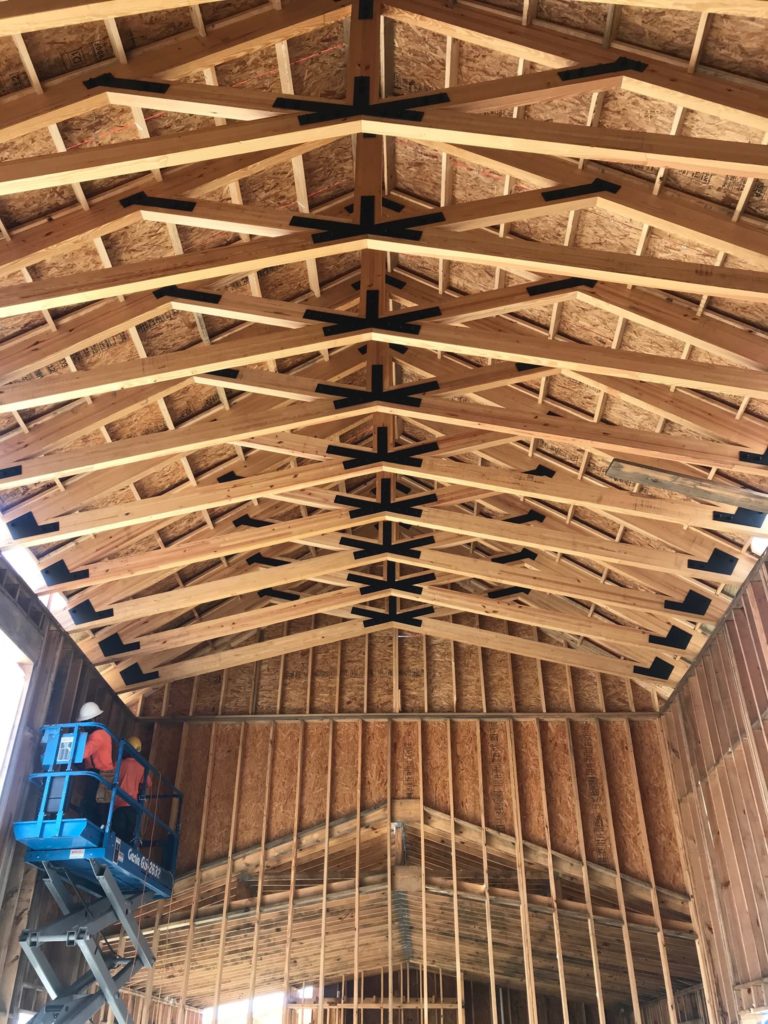The Importance of Quality in New Construction: A Builder’s Perspective
As builders, we’re not just constructing buildings; we’re creating the foundations for people’s lives, businesses, and futures. The importance of quality in new construction cannot be overstated. It’s the cornerstone of a project’s success, influencing its longevity, safety, functionality, and the satisfaction of those who will occupy the space. This blog post will delve into common problems that arise in new construction, the critical role of quality products and workmanship, and how to ensure that your project stands the test of time.

Common Problems in New Construction
Unfortunately, new construction projects, even with the best intentions, can encounter a range of problems. These issues can lead to costly repairs, delays, and significant frustration for both builders and owners. Some of the most common problems include:
- Structural Issues: These can range from foundation problems and inadequate framing to issues with load-bearing walls. Such defects can compromise the building’s integrity and safety.
- Water Intrusion: Leaks in roofs, walls, and windows can lead to water damage, mold growth, and compromised structural integrity.
- HVAC System Inefficiencies: Improperly installed or inadequate heating, ventilation, and air conditioning (HVAC) systems can result in discomfort, high energy bills, and poor indoor air quality.
- Electrical Problems: Faulty wiring, inadequate electrical capacity, and incorrect installations can create safety hazards and functional issues.
- Plumbing Problems: Leaks, blockages, and inadequate water pressure can cause significant damage and inconvenience.
- Material Defects: Using substandard or defective materials can lead to premature failure of various building components, such as roofing, siding, and flooring.
- Poor Workmanship: Even with quality materials, poor workmanship can undermine the entire project. This includes incorrect installation, inadequate attention to detail, and a lack of skilled labor.
- Code Violations: Failure to adhere to building codes and regulations can result in legal issues, safety hazards, and the need for costly rework.

The Impact of Quality Products
The first step in ensuring quality in new construction is selecting the right products. Builders must prioritize materials that meet or exceed industry standards, are durable, and are appropriate for the specific application and environment.
- Durability and Longevity: Choosing durable materials that can withstand the elements, wear and tear, and the test of time is crucial. This reduces the need for frequent repairs and replacements, saving both money and resources in the long run.
- Performance: The materials used should perform as expected. For example, roofing materials should provide adequate protection from the elements, insulation should provide the specified R-value, and windows should be energy-efficient.
- Safety: Materials should meet safety standards and not pose any health hazards to the occupants. For instance, materials should be fire-resistant, low-VOC (volatile organic compound), and free from harmful substances. You can find more information on product safety at the Consumer Product Safety Commission (CPSC).
- Sustainability: Increasingly, builders and owners are prioritizing sustainable materials that have a minimal environmental impact. This includes materials that are recycled, renewable, and locally sourced.
- Aesthetics: While functionality is paramount, the materials used also contribute to the building’s overall aesthetic appeal. Builders should select materials that are visually pleasing and complement the design.

The Importance of Quality Workmanship
Even the highest-quality materials can fail if they are not installed correctly. Quality workmanship is therefore essential to ensure that the building is constructed according to the plans and specifications, and that it will perform as intended.
- Skilled Labor: Employing skilled and experienced tradespeople is crucial. These professionals have the knowledge, expertise, and attention to detail necessary to execute the work correctly.
- Proper Installation: Materials must be installed according to the manufacturer’s instructions and industry best practices. This ensures that they perform as intended and that warranties are not voided.
- Attention to Detail: Paying attention to even the smallest details can make a significant difference in the overall quality of the construction. This includes ensuring that joints are properly sealed, surfaces are level, and finishes are applied correctly.
- Supervision and Inspection: Effective supervision and regular inspections are necessary to ensure that the work is being done correctly and that any issues are identified and addressed promptly.
- Code Compliance: Builders must be thoroughly familiar with building codes and regulations, and they must ensure that all work complies with these requirements. You can find more about building codes at the International Code Council (ICC).
- Continuous Learning: The construction industry is constantly evolving, with new materials, techniques, and technologies emerging. Builders and their teams should engage in continuous learning to stay up-to-date and improve their skills.
Avoiding Problems Through Proactive Measures
Many of the problems that occur in new construction can be avoided by taking a proactive approach to quality. This includes:
- Thorough Planning and Design: A well-thought-out plan and design is essential. This includes detailed drawings, specifications, and a clear understanding of the project’s goals and requirements.
- Careful Contractor Selection: Choosing reputable and qualified contractors with a proven track record of quality work is crucial.
- Comprehensive Contracts: Clear and comprehensive contracts that specify the scope of work, materials, standards, and responsibilities can help prevent misunderstandings and disputes.
- Regular Communication: Maintaining open and regular communication between the builder, contractors, owner, and other stakeholders is essential for addressing issues promptly and ensuring that everyone is on the same page.
- Quality Control Program: Implementing a robust quality control program that includes regular inspections, testing, and documentation can help identify and correct problems early on.
Conclusion
In new construction, quality is not an option; it’s a necessity. By prioritizing quality products, workmanship, and proactive measures, builders can minimize problems, enhance client satisfaction, and construct buildings that are safe, durable, and built to last. We at Building Products Plus understand the critical role that quality building materials play in the success of any construction project. With over 25 years of experience, we are committed to providing builders with the highest quality materials and expert support. For inquiries and quotes, please visit our contact page or call us at (800) 816-0335. Let us help you build a better future.
